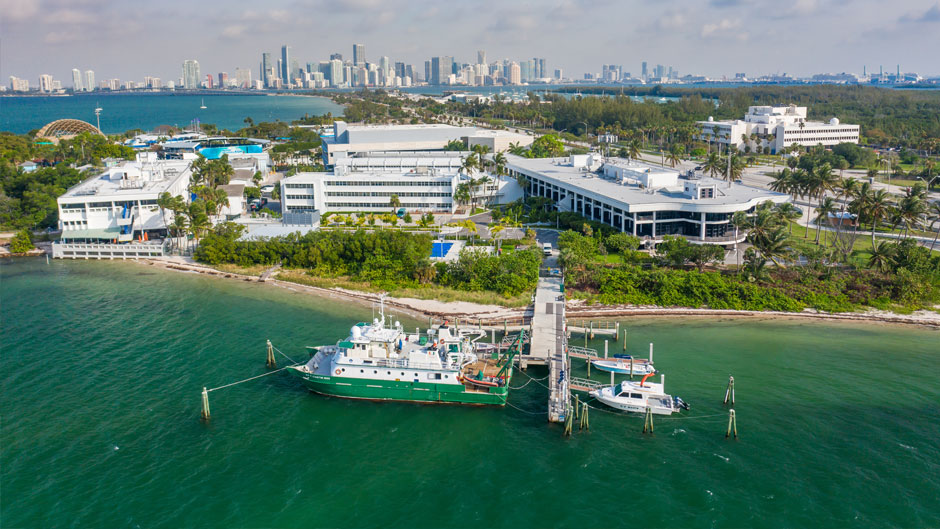During the 2020 hurricane season there was a total of 30 named storms, 12 of which hit U.S. shores. Seven storms reached major hurricane status (Category 3 or larger). Louisiana took a beating, with five storms hitting the southeastern state. And for the second time in recorded history, the National Hurricane Center exhausted every name on the preset list of tropical cyclone names for the Atlantic basin, necessitating the use of the Greek alphabet to name storms for the remainder of the season.
Last year’s Atlantic hurricane season was unforgettable for a multitude of reasons. But what will this year hold?
’Canes on ’Canes, a group of graduate and undergraduate students at the University of Miami Rosenstiel School of Marine and Atmospheric Science, will answer that question and more on Friday, June 4, at 11:30 a.m., when it hosts a special webinar focusing on the 2021 hurricane season.
“They’re top-notch,” said mentor Brian McNoldy, senior research associate and tropical cyclone expert at the Rosenstiel School, about the group of students.
Among the topics they address: the atmospheric, oceanic, and climatic conditions that could make this year an above-average season, hurricane preparedness, and the groundbreaking tropical cyclone research now underway at the Rosenstiel School.
“Tragically, several hurricanes inflicted widespread devastation along the Gulf Coast and in Central America during the 2020 season,” said Quinton Lawton, a Ph.D. student in the Department of Atmospheric Sciences and one of the team leaders of ’Canes on ’Canes.
“Notably, one of the strongest and most destructive hurricanes, Iota, occurred in mid-November and was the last tropical cyclone in the Atlantic basin for 2020,” he said. “So, that’s an important reminder that we cannot let our guard down at any point in the season. It only takes a single storm to cause devastation, and the 2020 season highlighted how hurricanes can form at unusual times and locations.”
Registration for the webinar is now open.

